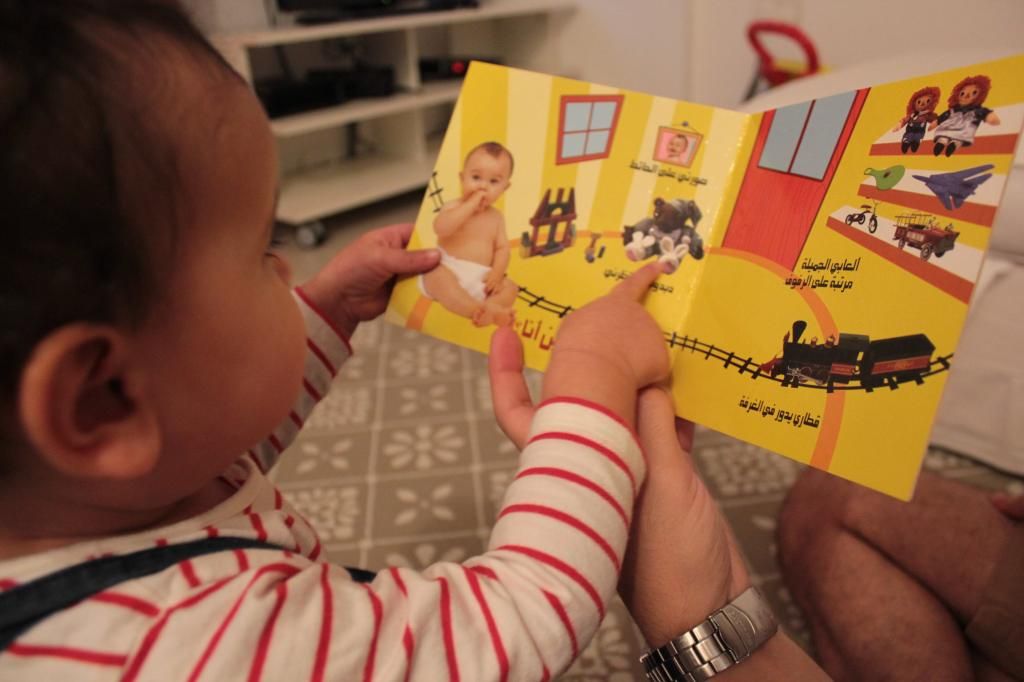I've been thinking more and more about how to make sure that my daughter doesn't end up like me and actually learns to be bilingual (multilingual is the goal).
You see, despite being a halfie (Egyptian and Filipina), learning Arabic and Tagalog just didn't happen for me. Don't get me wrong, I'm not a blank slate. I can understand Egyptian Arabic pretty well and can speak it at an intermediate level(wait-- does that mean I'm bilingual? Do I have to be fluent?), and Tagalog...well OK fine, I am a blank slate when it comes to Tagalog. I did pick up a good amount of French somehow though. *shrugs*
As for my husband? Oh...he only speaks FOUR languages. Four! How is that even fair?
He speaks Arabic, English, French and Spanish. (He's completely Egyptian.)
Obviously, being multilingual has its perks. You get more job opportunities, you can get around in more countries, and you feel fancy when you understand something that no one else around you does. But it doesn't just happen, I'm proof of that.
My parents did the best they knew how, but here are a few things I've learned to do differently with my own daughter.
- While we'll speak English at home (because that's how Karim and I have always communicated- and I worry that my incorrect Arabic may negatively affect my daughter's learning) Karim will only speak to her in Arabic. And when she's old enough to talk, he'll make sure that she only speaks to him in Arabic.
- Expose her to as much Arabic as I can right away. By that I mean, Arabic cartoons, books, toys, songs etc. Since English is going to be the dominant language in her life, she's going to need to hear a lot of Arabic if she's going to pick it up.
- Set out and work towards the goal of her learning to write it and read it as well as speak it. Since written Arabic is so very different to colloquial Arabic, and since Karim himself is not very confident about writing, we will have to seek outside help (such as a tutor) when the time comes. (In all fairness, my parents did provide me with a tutor for about 5 years- so I can read it and write it at a basic level-- just don't have me look at your contracts for you!)
- Consistency. Whatever goals we set out for her, we will continue to work towards until we reach them. I ended up moving to the States with just my mother for a few years when I was younger, so for a good amount of time, there was absolutely 0 Arabic in my life. I forgot most of what I had previously learned.
- Create a positive learning experience. I can't tell you how many times I was compared to this kid or that kid that spoke Arabic infinitely better than I did. It never helps. With my own daughter, I'll try as much as I can to create a fun and exciting learning environment. I know that there were many times someone would ask me to say something in Arabic only to start teasing me about my accent- it's discouraging and I'll make sure it doesn't happen whenever I can.
- Immersion. We've both got family in Egypt, so we'll try to travel there at least once a year- and hopefully our daughter will pick up the language better since she'll have to communicate in Arabic.
Now there's this lingering feeling that perhaps there's going to be a missed opportunity with not teaching our daughter French and Spanish. So if there's anyone out there with a similar situation, and has successfully raised a polyglot, I'd love to hear your methods! Would you introduce these languages, too? If so, when? Also- what learning resources did you use and where did you find them?Please leave your comments below, I'd love to read them!



No comments:
Post a Comment